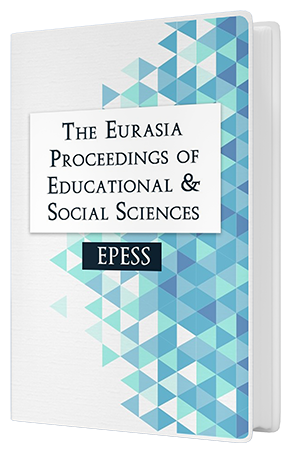A SHORT COURSE ON SPECTROSCOPY AND SPECTROPHOTOMETRY TRAINING FOR WORKERS IN INDUSTRY
Keywords:
Spectroscopy, spectrophotometer, lifelong learning, industry educationAbstract
The use of spectrophotometers pass beyond academic research laboratories and become widely used in many industries including plastics, medical, chemical, textile, food, painting, paper, pharmaceutical etc. They are used for processing, quality control, testing and research purposes. Although they become more common as a tool in industry, mostly, industry workers do not have scientific knowledge and practical usage experience. These unexperienced workers cause misinterpreted results and loss of time and money. Due to this fact we offered a two days course for introduction to spectroscopy and practical usage of a common spectrophotometer. The course includes lectures and experimental work. Contents are introduction to spectroscopy, safety usage requirements, sample preparation for testing, calibration of device for different references, two experiments and data processing of the results. This paper describes the need for the course, learning objectives of the course, the explanation of the course contents and used tools for experiments. Finally we report the results of the assessment in terms of trainee’s responses and evaluations. The goal of this lifelong learning course is to help industry workers to study the fundamentals of spectroscopy, to use modern spectrophotometer instrumentation safely and correctly and to obtain accurate results. The results shows remarkable success in terms of course requirement and improvement of workers knowledge and expertise about spectrophotometry.Downloads
Published
Issue
Section
License
Copyright (c) 2015 The Eurasia Proceedings of Educational and Social Sciences

This work is licensed under a Creative Commons Attribution-NonCommercial-ShareAlike 4.0 International License.
The articles may be used for research, teaching, and private study purposes. Any substantial or systematic reproduction, redistribution, reselling, loan, sub-licensing, systematic supply, or distribution in any form to anyone is expressly forbidden. Authors alone are responsible for the contents of their articles. The journal owns the copyright of the articles. The publisher shall not be liable for any loss, actions, claims, proceedings, demand, or costs or damages whatsoever or howsoever caused arising directly or indirectly in connection with or arising out of the use of the research material. All authors are requested to disclose any actual or potential conflict of interest including any financial, personal or other relationships with other people or organizations regarding the submitted work.




